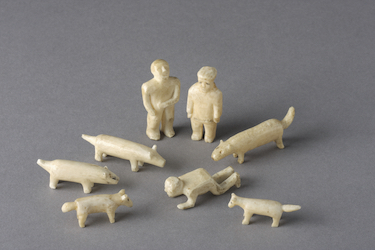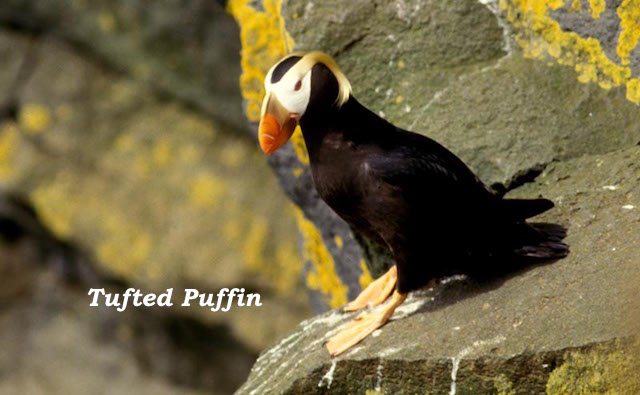CHAPTER SEVEN
Hull Down in a Following Sea
I moved through the throngs of passengers now populating the corridors of the ship. Murmurs of “doctor” came from some of them, as they reacted to my surgical scrubs. I had removed my coat. The temperature maintained inside the vessel hallways was always high, probably to help passengers recover from the penetrating cold just outside. In my cabin, I threw off the scrubs and slipped into my bunk. Hours passed, but I needed no alarm clock to awaken me. The anchor chain did that job quite efficiently. Link by link the chain locker filled. Each was like the single beat of a bass drum in the cabin. I sighed and got up. While I had slept, a set of clothes had been delivered to my room. All of my things had been cleaned and pressed. I was astounded by the speed and quality of work.
‘Botany Bay’ stepped into my room, closing the door behind him. Once again I was caught naked. “Don’t you people ever knock?” I asked, throwing on underwear and my ironed shirt.
“Who’s everyone?” Don shot back. I finished dressing in silence, waiting for him to say whatever it was he had come to say. He examined my pressed trousers.
“Good work. They do good work down there. But they don’t usually work so fast.” He put the trousers into my outstretched hand. “But you impressed them. Filipe thinks you’re some sort of reincarnated Polynesian God.” I stopped and looked at him through the neck hole of my shirt, half on.
“What?” I asked, and then went on, “because of what happened on the island?”
Don shook his head.
“The scars,” he pointed at my now covered torso. The scars impressed the hell out of him. You can fake everything else, but you can’t fake those scars.”
“Oh great,” I said, more to myself than Don, trying to brush it off, “At least I’ll get clean clothes fast.”
Don held his stomach.
“And probably a hell of a lot more,” he followed. “The Germans up there run the ship, or so they think, but it’s really the Filipinos down in the bilge. Nothing happens without their approval and work.” He sat in my single chair as if he was going to stay awhile, so I closed the door. I waited. We sized up each other for half a minute.
“Who are you?” he insisted, his voice serious and quiet. I did not answer or change demeanor. I perched on the end of my unmade bunk. He continued amidst my silence. “Anthropologist? My ass. You make Indiana Jones look like a grade school geek. The scars, thousands of dollars in hundred dollar bills, Master SCUBA diver, medical training of some sort, but it isn’t really that stuff about you which is truly strange.” I just breathed in and out, waiting for him to finish. “No, it’s your movement to action. An action that I wish I could emulate. You saved that woman, damned near at the loss of your own life. You did it on automatic. You came to get me in a flash. Nobody else. Just you alone. And you had the situation taken care of. We were out of there in minutes. No normal human being, certainly no anthropology professor, could have pulled that off.”
He reached into one of his ‘botanist’ type vest pockets and took out a cigarette. “I don’t smoke,” he intoned sheepishly, carefully extracting a Bic, and then touching the flame to its tip. Then he sat, reticent, taking puff after compulsive puff, without regard to the carcinogenic damage he might be doing to me with his second-hand smoke. I voiced no complaint.
“Why do they call you Botany Bay?” I asked him finally, stalling. He smoked on, but I waited him out.
“Botany Bay is the bay that Captain Cook, who’s no kin of mine, sailed into years ago, along the coast of Australia.” I knew that but said nothing.
“I was ashore a few years back, leading a tour when some of the crew got off down the way from us. They butchered some wild game. I refused to board with my passengers until the captain made the crew return and bury the animals they’d killed. The name’s just stuck. And, who are you, once again, or, even better, what the hell are you?” I looked at Don and wondered about him. I had scanned his Agency background briefly before coming aboard. Once again I was surprised at just how little a comprehensive report revealed about the total reality of a person, even though there was always usable data. I was likely to get no more, as cell phone towers along the Bering Sea did not exist or were too distant for coverage and ship to shore radio was neither efficient or confidential.
“I’m the one that God sent to get you out of trouble.” I offered. Don reacted with attitude.
“No, if you’ll recall, the note said that you’d get me into trouble. And Fatima did not take place in 1916. It was 1917. You might have heard of Fatima, and even be a Catholic, but you don’t know much about the mythology of the religion.”
I made eye contact, failing to think of what to say. Finally, I said, “I’m just a guy, Don, like you, who’s been around the Horn a few times.” Don jerked his head, after finishing off his cigarette.
“I didn’t expect much of an answer,” he admitted, “but, will you do me a favor and tell me before the cruise is over?” I twitched a little, not meaning the physical gesture at all. “And thanks for saving my ass. What the hell do we do about the doctor?” I looked at him with no expression. “The real doctor, I mean.” “Well, c’mon, let’s go down there and find the carvings. You ought to at least get your money’s worth. The rest of us are working on this wreck because we need the tax-free money. Not you. Maybe you’ll just let me have the loot. Then we have to get up to the Lido deck and give the first of our daily talks.”
We left the room unlocked. Nobody locked cabin doors unless they had visitors, apparently, so I followed the custom.
“The money? Are you aboard for the money? Well, what about the fact that you work on this tub because you’re giving so much help to a young virgin, or formerly virgin, little girls?” This I said, conversationally, to the big man’s retreating back. He stopped in his tracks. I bumped right into his broad back, before braking myself.
“Leave her out of this. Besides, you’ve not come clean about Marlys. Or Yemaya, as you call her. But I saw the flame in her eye. I don’t really need to know what she said. You’re dead meat.”
Our conversation paused as Dutch entered the cabin. He was immediately accosted.
“We need the keys to the clinic,” Don demanded, his hand held out.
“Why?” Dutch asked, making no move.
“Because our Goddamned brain dead doctor stole those carvings and I got blamed. We want ‘em back!” Don’s pent up rage exploded. “I’ve never been accused of stealing anything in my life. I want those carvings. Gimme the Goddamned keys!” Dutch peered over at me, then reached into his pocket and took out a set of keys.
“The one with the red cross on it,” he murmured, and then tossed me the set.

Inuit Bering Sea Eskimo-Walrus Ivory Carvings
The clinic was locked, but the doctor’s case sat right atop the small examination table. Don grabbed it, and pulled it open. “There!” he exclaimed. “Just like you said.” Carefully he removed the exquisitely carved figures, each of some Bering Sea animal. “He didn’t even bother to hide them,” he now gripped, lining them up on the table. To me, they looked like they were worth every bit of the four hundred, and change, I’d been forced to pay for them.
















Don's Miss any Updates or New Chapters
Join our mailing list to receive the latest news and updates from our team.
You have Successfully Subscribed!